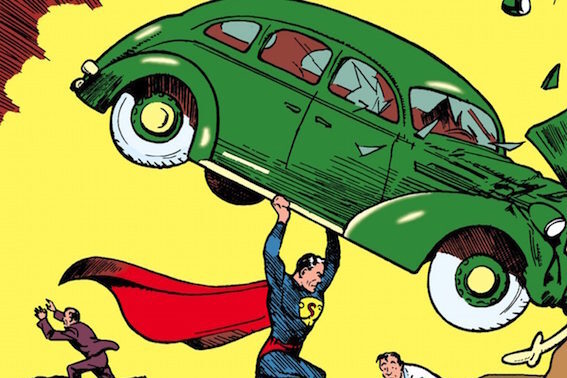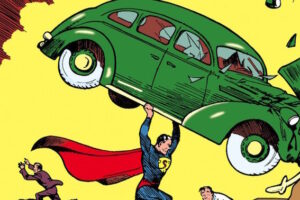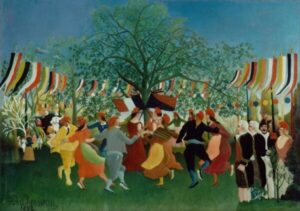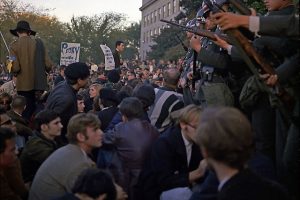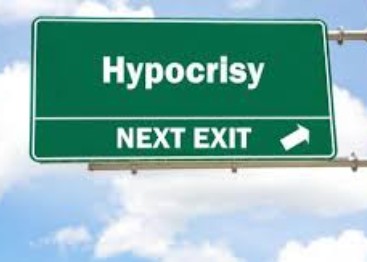10 Surprising Things That Have Actually Been Banned
Have you ever wondered if “cancel culture” is just a buzzword or something more real? It’s a topic that’s been tossed around in conversations, online debates, and even late-night talk shows. For some, it’s about standing up—using your voice to call out injustice, whether that means peacefully boycotting a celebrity or refusing to support a brand you no longer believe in. For others, it’s about personal choice—tuning out what doesn’t align with your values.
But here’s where things get strange (and strangely fascinating). Over time, the reasons people get “canceled” have ranged from the understandable… to the downright absurd. Imagine someone getting banned just for posting a joke, or a company blacklisted over something trivial—it’s happened more than you might think. And when bans start to feel random or hard to justify, they shift from activism to something more surreal.
This blend of free expression, public backlash, and cultural overreaction has produced some of the most unbelievable moments online.
10. A Teen in the UK Was Banned by Law From Saying the Word “Grass” – Seriously

It sounds like something ripped from a surreal comedy sketch, but this actually happened. In 2014, a teenage boy in the UK was legally banned from uttering a single, very ordinary word: “grass.” Not because he had hay fever. Not because he was allergic. But because the word had taken on an entirely different meaning in his world.
In British slang, “grass” doesn’t just refer to the green stuff you mow on weekends—it’s also a derogatory term for a police informant. Apparently, this teen used the term so frequently and so aggressively against his neighbors that a court in England or Wales had to step in and officially prohibit him from ever saying it again. Yes, by court order. Yes, seriously.
So how did we get here?
Turns out, this wasn’t just a case of some angsty teen with a loud mouth. He had reportedly been harassing his neighbors for over two years, accusing them of snitching to the police. But that was just the start. His rap sheet included verbal abuse, vandalism, and even carrying weapons like knives and baseball bats. He created such an environment of fear that local authorities had no choice but to intervene in the most unusual way.
The court decided that the word “grass” itself had become a tool of intimidation. It wasn’t about banning speech lightly—it was about stopping a pattern of aggression that had gone unchecked for far too long. The ban came with consequences, too: if he used the word again, he could face arrest or even institutionalization.
It’s a bizarre example of how language, context, and behavior can collide in the most unexpected ways. And while the idea of being banned from saying a single word might sound unbelievable, it’s a sharp reminder that sometimes, the weirdest real-life stories aren’t urban legends—they’re court documents.
9. Stanford’s Marching Band Has Been Banned More Times Than You Can Count – Here’s Why
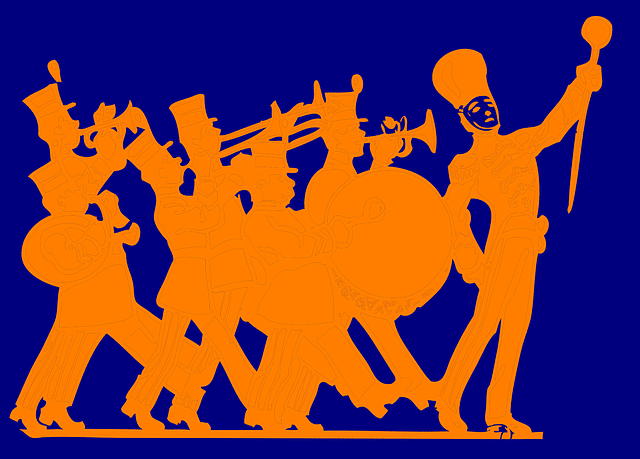
When people think of college marching bands, they usually imagine sharp uniforms, flawless formations, and upbeat halftime performances. But then there’s the Stanford Marching Band—a group that proudly turns every expectation upside down and has, somehow, become the most banned band in sports history.
This isn’t some rebellious phase. It’s been going on for decades.
It all began in the 1960s, when Stanford’s original band director was fired and chaos took the baton. The students were left in control of the group, and what followed was not your average band geek story. Think less music and discipline, more flying genitalia, musical kitchen sinks, and halftime shows that tackled topics like Jimmy Carter’s hemorrhoids—yes, that actually happened.
The band quickly became infamous for their unpredictable, outrageous, and often offensive antics. One year they paraded a live cow across the field. Another time, they substituted real instruments with random household items. And these weren’t isolated events—they were part of a long-standing tradition of satirical performances, pushing the boundaries of what’s acceptable at public events.
The consequences? A trail of bans stretching across the U.S. They’ve been barred from Notre Dame since 1930, banned from Disneyland since 1972, and kicked out of entire states, including one attempt by the Governor of Oregon to keep them out permanently. During the 2015–2016 season, they weren’t even allowed at away games, following internal findings of hazing, drug use, and sexual harassment violations.
It’s no wonder many consider the Stanford band more of a renegade comedy troupe than a musical ensemble. They’ve blurred the line between satire and scandal so often, it’s hard to tell which ban came from a genuine offense and which from sheer absurdity.
Still, love them or loathe them, they’ve carved out a legendary (and deeply controversial) place in American college culture.
8. The Astonishing Ban of Sesame Street in Mississippi: A Lesson in Prejudice

When we think of children’s programming, Sesame Street is often one of the first shows that come to mind. And rightfully so! For decades, it has been a beloved and educational part of many children’s lives. The show has been dedicated to teaching kids about letters, numbers, the importance of sharing, and so many other fundamental and positive concepts. It’s the kind of show that you’d think would be universally loved. But, as we’ll see, that wasn’t the case in Mississippi back in 1970, shortly after its debut.
What could have possibly led to such a negative reaction in the Magnolia State? You might be shocked to learn that it was all about racial integration. That’s right, the simple act of showing black and white kids playing together on the show was too much for some people to handle.
The State Commission for Educational Television played a central role in this controversy. In a controversial 3 – 2 vote, they decided to ban Sesame Street from television in Mississippi. One commission member even went so far as to say, “the state has enough problems to face without adding to them.” But what exactly did they mean by that? It’s not entirely clear, but it’s clear that their opposition was rooted in a resistance to change and a desire to maintain the status quo when it came to racial segregation.
Interestingly, the father – in – law of one of the commission members was the founder of an organization dedicated to maintaining segregation in schools. This connection can’t be overlooked when trying to understand the motivations behind the ban.
What’s even more surprising is that none of the commission members were willing to speak on record about the ban. Perhaps they were aware of the negative attention it was attracting or maybe they realized the absurdity of their decision. But once the ban became a national headline, the state faced a significant backlash. Public opinion was overwhelmingly against the commission’s decision, and Mississippi was suddenly in the spotlight for all the wrong reasons.
In a swift change of heart, the state quickly reversed its position. Suddenly, they found all kinds of reasons to love the show. This incident serves as a powerful reminder of the importance of acceptance and the negative impact that prejudice can have. It also shows how public opinion can influence decision – making, even in the face of initial resistance.
7. This Anti-War Classic Was Banned for Being Both Too German and Not German Enough

Censorship can be weird. But few bans are as oddly ironic—or downright contradictory—as the one surrounding All Quiet on the Western Front, the legendary anti-war novel and film by Erich Maria Remarque.
Imagine creating a piece of work so powerful, it gets banned by two different countries for completely opposite reasons. That’s exactly what happened.
In the late 1920s and early ’30s, Remarque’s story about a young soldier’s brutal, soul-crushing experience during World War I struck a nerve worldwide. It was raw, tragic, and unapologetically honest in showing the psychological destruction of war. And that, apparently, was just too much.
In Germany, the book and film adaptation were banned for being “anti-German”, supposedly undermining national pride and the valor of its soldiers. Meanwhile, Poland banned the same work claiming it was “pro-German,” accusing it of glorifying the German perspective.
Let that sink in: the exact same story was seen as offensive from two completely contradictory angles.
What actually makes All Quiet on the Western Front so unforgettable is that it doesn’t care about national flags or propaganda. It’s a deeply human story about the cost of war, not a glorified tale of victory or honor. But when you drop something that brutally honest into a politically charged world, it turns into a Rorschach test for national ego.
If anything, this bizarre double-ban shows how much personal and political bias can warp the way people interpret media. Sometimes it’s not the book that’s controversial—it’s the lens through which it’s read.
6. The Banning of a Peppa Pig Episode in Australia: A Cautionary Tale
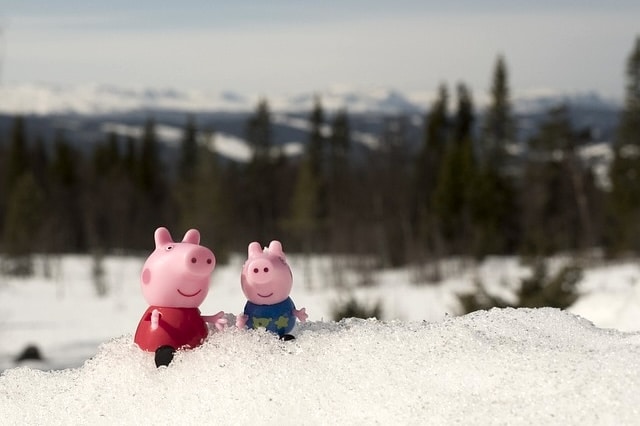
When we think about Australia, one of the first things that often comes to mind is its unique and sometimes dangerous wildlife. It’s a common perception that Australia is home to a plethora of creatures that can potentially pose a threat to humans. While it might be an exaggeration to say that almost everything in Australia is out to get you, the fact remains that the country has its fair share of hazardous fauna.
Take spiders, for example. Australia is home to around 10,000 different spider species. Out of these, only a handful are truly dangerous, and only two are deadly to adults. However, when it comes to children, the situation can be a bit more precarious. Even some of the less venomous spiders can pose a significant risk to kids.
This concern over the potential danger posed by spiders played a crucial role in a rather unexpected event – the nationwide ban of an episode of the popular British cartoon show, Peppa Pig, in Australia.
The banned episode had a spider-themed storyline. The plot revolved around Peppa Pig befriending a spider named Mr. Skinny Legs. The intention behind this episode was to convey a message to children that spiders aren’t really that dangerous and that they can’t cause harm. While this might be a valid and positive message in many parts of the world, it unfortunately didn’t align with the reality in Australia.
In the UK, where the show originated, the message was probably seen as harmless enough. After all, cities like Liverpool are not known for being hotspots for dangerous spider species. There are no widespread concerns about bird-eating tarantulas or black widows lurking in every corner. However, Australia is a different story altogether.
Given the country’s reputation for having some truly venomous and potentially harmful spiders, the decision was made to ban the episode. The concern was that showing a positive portrayal of a spider and telling children that they’re not dangerous could send the wrong message. Parents and authorities were worried that this could lead to children being less cautious around spiders, which could have serious consequences.
The ban of this Peppa Pig episode highlights the importance of considering the local context and potential risks when creating and broadcasting content for a global audience. It shows that what might be perfectly acceptable and educational in one country could be potentially dangerous and inappropriate in another.
5. Australia Once Tried to Ban the Word “Mate” — Seriously

If you’ve ever chatted with an Aussie or even just watched a movie set in Australia, chances are you’ve heard the word “mate”—and maybe even smiled at how naturally it rolls off their tongue. It’s more than just slang; it’s practically a national treasure, as iconic as kangaroos or Vegemite.
But in one of the most baffling moments in modern politics, Australia’s Parliament tried to ban the word “mate” inside the walls of its most official building. Yep—in 2005, staffers working in Parliament House were told they could no longer greet each other with the classic phrase “G’day, mate.“
Why? Reportedly, the ban came from a senior civil servant after just two complaints. Someone believed that saying “g’day mate” didn’t sound polite or professional enough for government halls. The order was put in place quietly, without public debate, and banned what might be the most Australian greeting ever.
The public reaction? Utter disbelief. Even the Prime Minister at the time called the idea ridiculous. The backlash was swift, loud, and laced with good-natured Aussie sarcasm. The ban didn’t even last a full 24 hours before it was hastily reversed.
It’s a funny reminder that sometimes, bureaucracy takes itself a little too seriously—even in a place known for its laid-back charm. And really, what’s more polite than saying hello like a true friend?
4. The Bizarre Ban of The Simpsons in Myanmar/Burma Over Colors
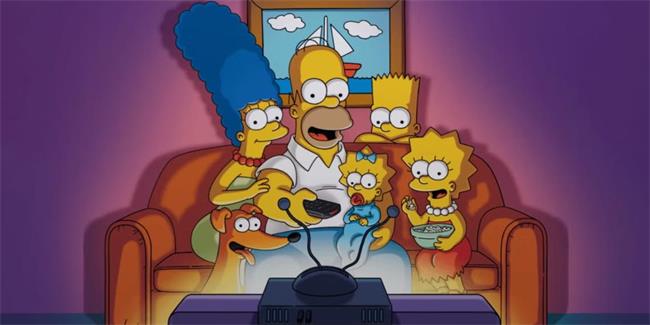
When we think about long-running and influential TV shows, The Simpsons surely ranks right up there at the top. It feels like this iconic series has been gracing our TV screens since time immemorial, or at least since the so-called “Dark Ages” of television. Over the years, it has managed to stir up its fair share of controversies, some more expected than others.
Back in the early days, even something as seemingly innocuous as the phrase “eat my shorts” managed to offend certain more sensitive individuals. But nothing could have prepared fans and observers for the most unusual reaction to The Simpsons – a ban that was based purely on color.
The saga unfolded in 2007 when the The Simpsons movie was released. At that time, Myanmar (also known as Burma) was embroiled in a significant conflict with the National League of Democracy. The flag of this political party featured a prominent red and yellow color scheme.
In an effort to avoid any potential conflict and to ensure that the country was not mistakenly perceived as showing support for the party or, worse still, inciting violence, the authorities in Myanmar/Burma took a rather drastic step. They decided to ban The Simpsons movie outright. The reason? The show’s color palette, which bore some resemblance to that of the National League of Democracy’s flag.
It’s a decision that has left many scratching their heads and wondering about the lengths to which a country will go to avoid any semblance of association with a particular political group. While it may seem like an overreaction to some, it serves as a reminder of the complex interplay between media, politics, and public perception.
In a world where colors can carry such weight and significance, it’s not surprising that even a beloved TV show like The Simpsons could find itself at the center of such a controversy. This incident highlights just how sensitive these issues can be and how easily something as simple as a color scheme can lead to significant consequences.
3. The Decade-Long Ban on Dunking in College Ball: A Look Back

College sports are no strangers to a plethora of rules and regulations that can sometimes seem as arbitrary and capricious as the whims of a group of organized crime bosses. It’s a world where the boundaries of what’s allowed and what’s not can shift in the blink of an eye, often leaving fans and players scratching their heads. But today, we’re going to zero in on one particular rule change that had a significant impact on the game – the ban on dunking, which lasted for a full decade.
This ban can be traced back to the year 1967, a time when Lew Alcindor, who would later become the legendary Kareem Abdul-Jabbar, was making waves on the basketball court. Standing at an imposing 7-foot-2 inches tall, Alcindor was a force to be reckoned with. His dunking ability was nothing short of spectacular, and it was as if dunking was his life’s mission – he did it with such grace and power that it seemed like second nature.
In his very first game, Alcindor shattered the UCLA scoring record. This feat, however, didn’t earn him universal admiration. In fact, it had the opposite effect. Many people immediately took a disliking to him, and some speculated that this was partly due to racial biases. The way he played, especially his dunking, was changing the game in ways that some weren’t ready to accept.
Dunking, although it had been around since the 1930s, was still a relatively new phenomenon in the world of college basketball at that time. And not everyone was a fan. There was a widespread sentiment among some quarters that dunking was akin to cheating. The argument was that it put shorter or less skilled players at a distinct disadvantage. It was as if they were saying that if a baseball player hit the ball too far, it was ruining the game for the less proficient hitters – a comparison that, while perhaps a bit extreme, helps to illustrate the mindset of those who opposed dunking.
The tipping point came when Alcindor, leading the UCLA Bruins, dominated the league tournament. His dunking was a major part of their success, and just two days after he dunked his way to victory, the powers that be decided to put an end to it. The ban on dunking was implemented, sending shockwaves through the college basketball community.
2. Marlon Brando Got Banned from Chat Rooms—Over and Over Again

You probably know Marlon Brando as the legendary actor behind The Godfather, a cinematic icon with a voice so distinct it’s been parodied for decades. But what you might not know is that, in his later years, Brando took on a very different role—online troll.
Yes, really. Brando, well into his twilight years, found a new obsession: AOL chat rooms. Back when the internet was still figuring itself out and chat rooms were the digital wild west, Brando would log on anonymously and start talking to complete strangers. The topic? Often politics. The tone? Well, let’s just say he didn’t exactly keep things civil.
According to several accounts, Brando would spend hours debating—or more often, arguing—with people online. And when things got heated, he wouldn’t hold back. He’d curse, rant, and eventually get himself banned from room after room. And yet, like a digital phoenix, he’d rise again with a new username and start all over.
What’s more fascinating is that there are firsthand stories from people who unknowingly befriended him online. Some didn’t believe it was really Marlon Brando until much later. Others just assumed he was another grumpy internet guy with strong opinions and a surprisingly deep knowledge of film history.
It’s a strangely humanizing twist for one of Hollywood’s most enigmatic legends—a man who once ruled the silver screen but couldn’t quite master online etiquette.
1. The Astonishing Case: UK Banned a Man from Sex Due to Low IQ

When it comes to discussing human rights, we often encounter a wide range of scenarios that challenge our understanding of what is fair and just. One such case that truly stands out as an unbelievable violation of human rights is the incident that took place in the UK in 2011.
Imagine a 41-year-old man, going about his daily life, not involved in any criminal activities, not having committed any heinous acts. But yet, he found himself at the center of a rather outrageous legal decision. This man had a learning disability, and his IQ was measured at a mere 48, which is considered significantly low by most standards.
Now, here’s where things get even more bizarre. His local council, which was responsible for overseeing certain aspects of his life due to his disability, took a rather extreme stance. They referred to him as having a “vigorous sex drive.” It seems that his housing arrangement, which was provided through some government program, somehow made his personal life more visible to the authorities. He had a boyfriend living with him, and this was apparently common knowledge.
The council’s main concern was that the man could not fully understand the potential consequences of his sexual activities. They were particularly worried about the health risks associated with unprotected sex and the like. And so, in a move that has left many scratching their heads, the court stepped in and made a ruling that prohibited the man from having sex legally.
In Britain, there exists a Court of Protection. This court has the authority to make decisions on behalf of individuals who are deemed to lack the intelligence or capacity to make certain decisions for themselves. It’s a concept that, while intended to protect those who may be vulnerable, in this case, it seemed to go a bit too far. The powers of this court are quite extensive, and can even include decisions as drastic as forced abortions or removing a person from life support.
This case has raised many questions about the balance between protecting individuals with disabilities and respecting their basic human rights. It’s a complex issue that has left the public divided, with some arguing that the court’s decision was necessary to protect the man from potential harm, while others see it as a blatant violation of his autonomy and personal freedom.

